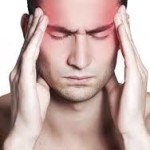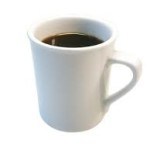[av_textblock size=” font_color=” color=”]
Caffeine Intake And Headaches
Can Caffeine Help Headaches?
This is a very confusing topic, as far as headaches are concerned. Caffeine intake can be bad for you. Caffeine is a natural stimulant found in tea, coffee, and soda. Caffeine is also found in chocolate, colas, and even some medications. Many caffeine headaches are headaches actually caused by caffeine consumption. Caffeine caused headaches are increasing in frequency, this type of headache is normally felt behind the eyes and can be ranging from debilitating to mild. Although too much caffeine can cause headaches one of the most common causes of caffeine headaches is the withdrawal. Caffeine withdrawals develops in response to a caffeine addiction. Caffeine addiction means that the person must constantly drink caffeine during the day. Caffeine addiction can actually occur within as little as 2-3 days. For most people who have caffeine headaches are consuming approximately 500 mg or more of caffeine per day. When this occurs for 2 weeks or longer reducing caffeine can be a major issue. When your body gets use to a certain caffeine level it does not like it when that level drops. Some of the side effects other than headaches can be fatigue and irritability. 100% of caffeine headaches are reversible the easiest way to do this is slowly reduce your caffeine intake over a four week period.
How can this get accomplished? Well for example if you are a Starbucks person start asking them to make your coffee with half decaf for a week. Then change it to ¾ decaf and then eventually total decaf. Most people don’t realize that there is still caffeine in decaf coffee and many caffeine free sodas. So you will still be getting some caffeine just not as much. The reason some medications such as Excedrin and Goodys work for some people with headaches is because it pushes caffeine into the system. If you are taking those medications for headaches remember that you are getting twice the amount of caffeine as most people. The reason why is most people have caffeine in your beverages and now in your medications. You will need to speak with your doctor about these over the counter medications and some prescribed as well. One of the best things to do to break the caffeine habit is to drink tons and tons of water. Keeping your body hydrated will negate the side effects of caffeine withdrawal also B complex and a solid vitamin will help. Along with making sure you are not skipping meals and having light snacks. Great snacks to have for people who are suffering with caffeine withdrawal headaches are things like nuts, almonds, cashews, and macadamias. These have a slow released sugar level that help keep you balanced to prevent you from missing your caffeine. Try these simple tips and if you have any further questions please feel free to let us know.
Dr. James Maggio of the ProAdjuster Chiropractic Clinic of Virginia Beach explains how caffeine causes muscle pain and can cause headaches
Caffeine Intake Tips
Dr. James Maggio of the Virginia Beach ProAdjuster Chiropractic Clinic explains some caffeine intake tips that will help your chiropractic care and overall health. Caffeine can negatively effect your chiropractic care. Contact Dr. Maggio at 757-473-9900 for a consultation about your caffeine intake.
I wanted to talk to you about caffeine. As many of you know I have decaffeinated coffee, and many of you would not want to see me having caffeine. So I need to talk to you about this because caffeine is terrible for you. One of the things it does is it grossly dehydrates your muscles. What that means is your care here is not going to go as smooth. When your muscles are not carrying the proper amount of fluid they become rigid and they cannot support your spine. So how do you break the caffeine habit? I have got news for you for some of you will not ever break the caffeine habit. Here is a little trick I can teach you if you need to cheat. Whenever you drink a glass of soda within thirty minutes have an equal amount of water. This will flush some of the caffeine out of your system and re-hydrate your body. For every ounce of caffeine you put into your body it pulls the same amount of fluid away from your muscles. So what can you do? Drink caffeine if you must but have more water to make up for it.
Caffeine passes into the bloodstream from the stomach and small intestine. Once in the bloodstream, caffeine stimulates the central nervous system. It can effect the nerves, brain and spinal cord. This can make you feel more awake and alert. Caffeine could reduces fatigue and improves focus and concentration. This is only temporary and will cause more fatigue. It also causes the release of acid in the stomach, and some people report heartburn or indigestion after consuming caffeine.
[/av_textblock]
[av_one_full first min_height=” vertical_alignment=” space=” custom_margin=” margin=’0px’ padding=’0px’ border=” border_color=” radius=’0px’ background_color=” src=” background_position=’top left’ background_repeat=’no-repeat’ animation=”]
[av_video src=’https://youtu.be/A3971NDxlms?rel=0′ format=’16-9′ width=’16’ height=’9′]
[/av_one_full]

